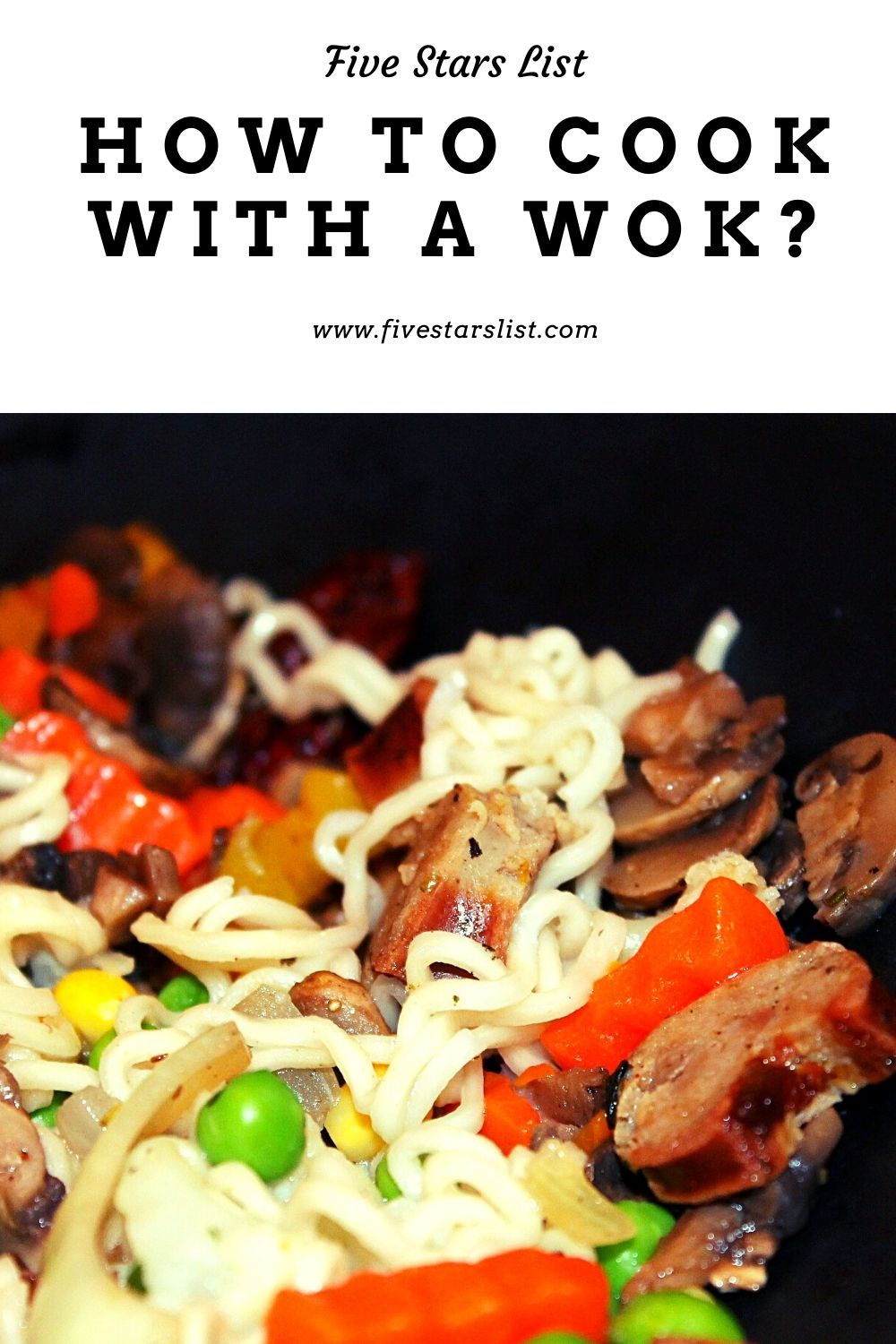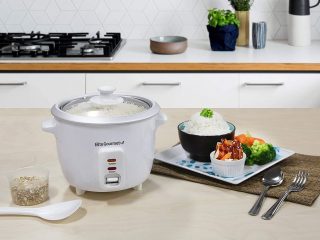As an Amazon Associate I earn from qualifying purchases.

Image by Doreen Corbey from Pixabay
The Asian way of cooking with a wok has conquered the world because of the food taste and simplicity and the healthy ingredients used in the Asian kitchen.
Asian cuisine would be unthinkable without a wok. A wok is a deep round pan used for brief food frying at high temperatures. The food made this way stays juicy, crunchy and full of flavor. Thanks to short heat treatment and being delicious, wok dishes are also healthy because they retain valuable vitamins and minerals.
But apart from the classic “stir fry” method, you can also stew and steam food in a wok (if you have a grate and lid). Along with common wok dishes, you can serve rice, noodles or some other pasta of your choice.
Cast iron, aluminum or copper wok?
Cast iron wok is the best choice because it is durable and retains the temperature perfectly, and perfect temperature is important because you want to stir the food, not cook or stew it. Cast iron wok can be more expensive, but it lasts for decades – if properly maintained. After cleaning, you should coat it with oil to not rust.
On the other hand, the cast aluminum wok is extremely light, easy to clean and maintain. Do not overheat it and use wooden or plastic food mixers to prevent damage. Instead of mixing, you can also shake the aluminum wok by holding it by the handle and throwing food in the air, like Asian professionals. With a little exercise, the food will not end up on the floor but will return to the wok.
Woks made of silargan – a special ceramic or nickel-containing stainless steel woks are also pretty popular. Both these wok types work the same way. It would be best to heat them first and then add the oil and food so that it does not stick to the bottom of the wok.
What to cook with a wok?
The main ingredients for almost every classic wok meal are proteins such as chicken, beef, pork, fish or seafood (shrimp, squid, etc.), tofu, seitan or tempeh, vegetables of your choice and foods such as garlic, onions, shallots or ginger that provide fine aroma to Asian style meals.
While you need to marinate the proteins, you can chop the other ingredients and put them in smaller pots, making it easier to transfer them in the wok following the order of preparation – from harder to softer food.
Proper food chopping
For pieces of meat or vegetables to be done simultaneously, you need to cut them to approximately the same size. Arm yourself with a sharp knife that will allow you to chop food accurately without making a mess on the countertop and get to work. You can cut meat into cubes or strips and vegetables and mushrooms into thin slices or sticks.
Slice the ginger, chili peppers and garlic as finely as possible. If you use broccoli, you can first boil it briefly and rinse it in cold water to keep its nice color. The broccoli will only need 2-3 minutes in the wok. Keep in mind that wok vegetables should not be softened too much, but stay crispy.
Good marinade
You can marinate meat such as beef, chicken or pork half an hour before frying – it’s just enough time to prepare the other ingredients. Salt and soy sauce will soften the meat, sugar will help create a fine, umami flavor, the oil will help herbs and wine aromas evenly cover the meat. Also, don’t forget the edible starch that will make the meat juicier. You can serve the marinade later as a fine sauce.
How to prepare meat for wok?
Place the diced meat in a well-heated pan, but don’t start stirring it right away to create a barrier that will keep the juices in the meat. If you fry a larger amount of meat, prepare it in several rounds – if there is a crowd in the wok, the meat will be stewed, not fried.
Then take the meat out on a plate, where it will wait for the other ingredients to get done so that you can mix them. After frying the meat, carefully wipe the pan with a paper kitchen towel so that the remaining pieces do not burn. Be careful while doing this – you can get burned.
Order of adding ingredients
After you have fried the proteins:
- Add the other ingredients – from harder to softer.
- Add the meat to the pan and make a place in the middle of the wok to add the sauce.
- Once it boils, mix everything and leave it on the fire briefly until the ingredients soften.
The sauce can be a marinade that you use for meat preparation or a mixture of soy sauce, rice vinegar, stock or water with spices and other additives (ginger, curry paste, edible starch, sugar, etc.)
The addition of fish or oyster sauce will go well with the fish, and some chefs also like to play with additions such as orange juice or sherry. Few drops of lemon or lime juice, in the end, can also “lift” other ingredients. It’s the same with peanuts, cashews, sesame seeds, basil or coriander.
The ideal temperature for stir-frying in a wok
Since the temperature at the edges of the wok is lower than in the middle, you can regulate the heat by moving the food (either by using the utensil or shaking the pan) to keep the food from burning. Wok meals are fried briefly, so don’t get too far from the stove to keep everything under control.
Image source: Amazon Product Advertising API
Amazon and the Amazon logo are trademarks of Amazon.com, Inc, or its affiliates.
Last update on 2025-04-19 / Affiliate links / Images from Amazon Product Advertising API









